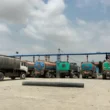Italy has unveiled a landmark shift in its immigration policy by approving 165,000 work visas for 2025 – its largest quota to date – and introducing new rules that allow seasonal migrant workers to start employment before receiving formal work permits.
The latest directive, aimed at tackling labor shortages and curbing worker exploitation, marks a significant easing of Italy’s immigration framework.
Seasonal workers can now legally begin working upon proof of application and proper employer registration, rather than waiting for their full permit approval – a process that previously left many in legal limbo.
Key Policy Changes Include:
- Work Before Permit Approval: Migrants who apply to convert their seasonal permits to regular work can begin employment immediately, provided paperwork is in process.
- Electronic Job Declaration: Employers must electronically submit the Unilav employment form.
- Social Security Requirement: For domestic roles, the job must be registered with INPS, Italy’s social security authority.
These changes ensure migrant workers are brought into the legal workforce from day one, securing labor protections and minimizing the risk of exploitation that often arises during bureaucratic delays.
Previously, many seasonal workers were pushed into informal or illegal labor due to long waits for permit conversions, often working without rights, insurance, or fair wages.
Italy’s revised rules aim to plug that gap and bring transparency and dignity to the employment process.
Visa Quota Breakdown for 2025:
- Total Work Visas: 165,000
- Seasonal Worker Visas: 93,550 (primarily for agriculture and tourism)
- Care Worker Visas: 10,000 (due to rising elderly population demands)
Additional allocations will support the construction and healthcare sectors.
The increase follows a clear trend: Italy issued 136,000 visas in 2023, 151,000 in 2024, and now 165,000 for 2025, reflecting the country’s growing reliance on foreign labor amid demographic changes and economic recovery efforts.
These reforms are part of Italy’s broader three-year migration strategy designed to streamline legal pathways for foreign workers, reduce illegal employment, and respond to sectoral labor demands across the nation.
What Migrants and Employers Must Know:
Migrants can begin work during the processing period with valid documentation.
Employers are responsible for timely job declarations and compliance.
More visa opportunities are now available across multiple industries.
The updated system is expected to attract more foreign talent, enhance transparency, and support both Italy’s economic needs and migrant welfare.












